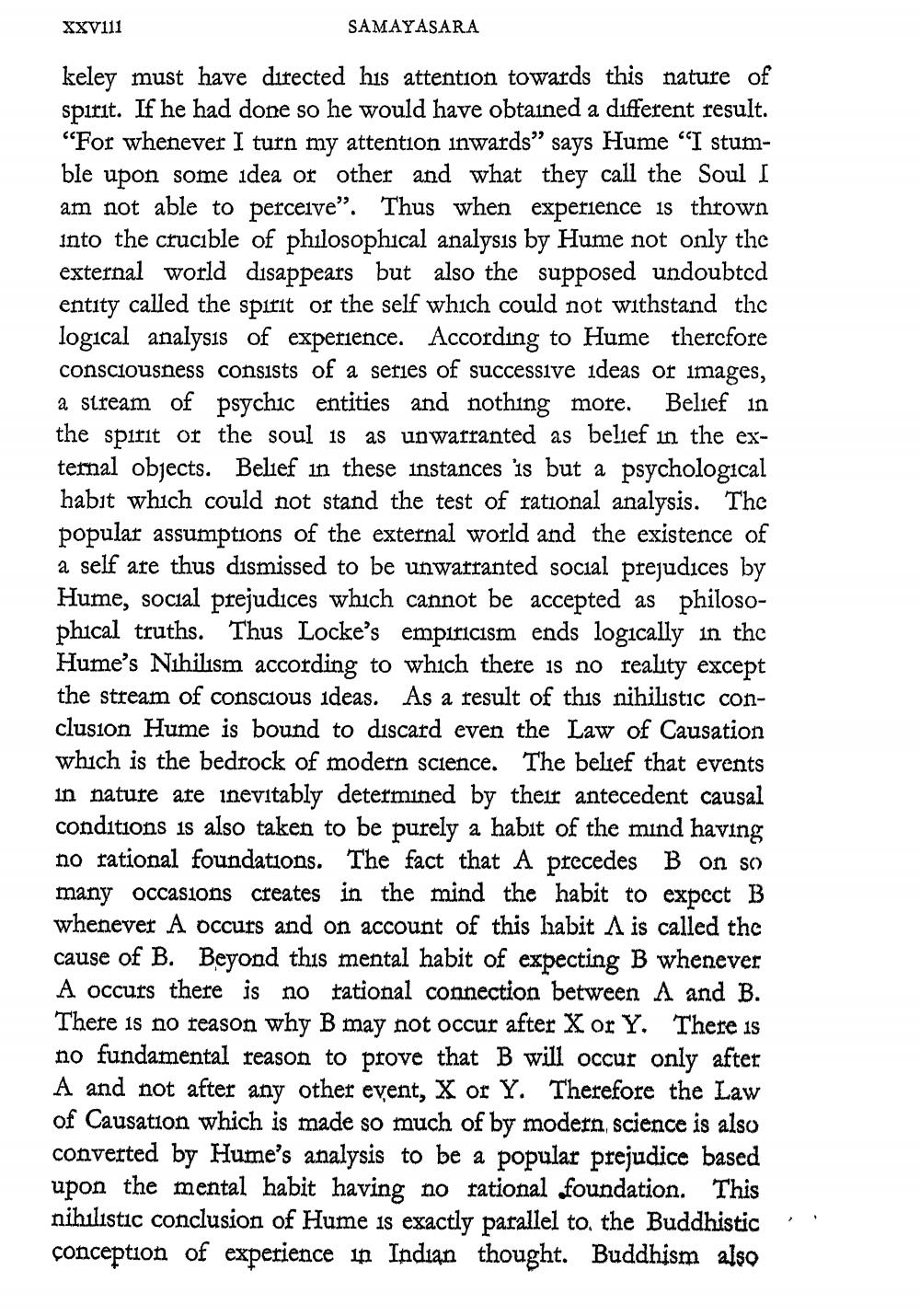________________
XXV111
SAMAYASARA
keley must have directed his attention towards this nature of spirit. If he had done so he would have obtained a different result. "For whenever I turn my attention inwards" says Hume "I stumble upon some idea or other and what they call the Soul I am not able to perceive". Thus when experience is thrown into the crucible of philosophical analysis by Hume not only the external world disappears but also the supposed undoubted entity called the spirit or the self which could not withstand the logical analysis of experience. According to Hume therefore consciousness consists of a series of successive ideas or images, a stream of psychic entities and nothing more. Belief in the spirit or the soul is as unwarranted as belief in the external objects. Belief in these instances is but a psychological habit which could not stand the test of rational analysis. The popular assumptions of the external world and the existence of a self are thus dismissed to be unwarranted social prejudices by Hume, social prejudices which cannot be accepted as philosophical truths. Thus Locke's empiricism ends logically in the Hume's Nihilism according to which there is no reality except the stream of conscious ideas. As a result of this nihilistic conclusion Hume is bound to discard even the Law of Causation which is the bedrock of modern science. The belief that events in nature are inevitably determined by their antecedent causal conditions is also taken to be purely a habit of the mind having no rational foundations. The fact that A precedes B on so many occasions creates in the mind the habit to expect B whenever A occurs and on account of this habit A is called the cause of B. Beyond this mental habit of expecting B whenever A occurs there is no rational connection between A and B. There is no reason why B may not occur after X or Y. There is no fundamental reason to prove that B will occur only after A and not after any other event, X or Y. Therefore the Law of Causation which is made so much of by modern, science is also converted by Hume's analysis to be a popular prejudice based upon the mental habit having no rational foundation. This nihilistic conclusion of Hume is exactly parallel to the Buddhistic conception of experience in Indian thought. Buddhism also




